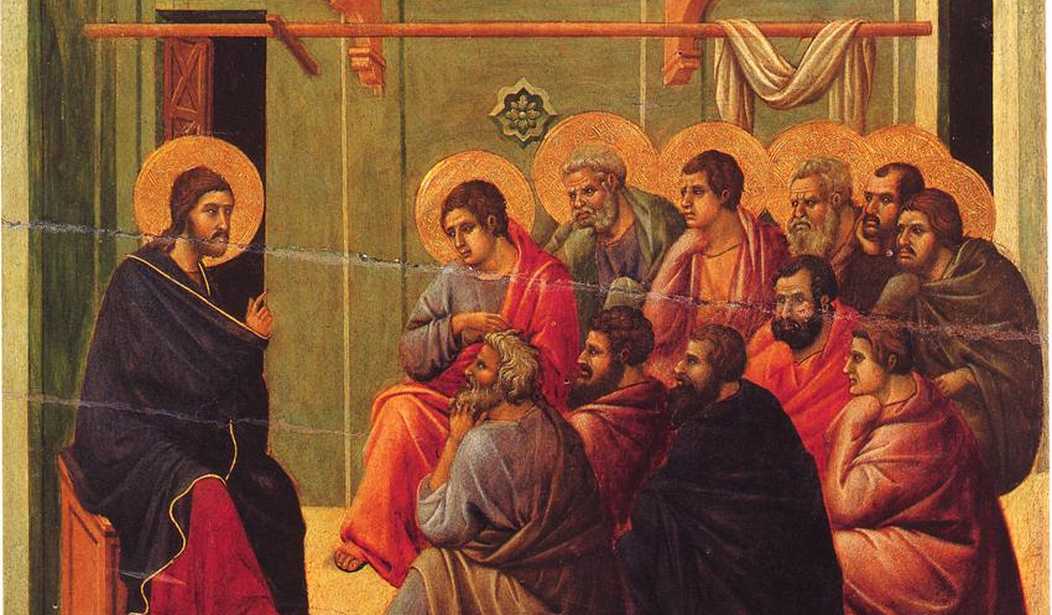At Trinity Episcopal School in New Orleans, about which I have written here several times, the key sentence in the daily school prayer asks God to “make us gentle, generous, truthful, kind, and brave.” (Being a boy, and a competitive one, I had particular trouble with the “gentle” part.) Good words to live by.
But this week’s reading from Philippians provides a fuller and perhaps even more eloquent exposition of some of the same desired character traits. If one wants to strive for any ways of living that are more specific than, but fully in line with, the Two Great Commandments to love the Lord and love our neighbors, St. Paul’s words to Philippians are a great place to start, and maybe both to start and end:
Finally, beloved, whatever is true, whatever is honorable, whatever is just, whatever is pure, whatever is pleasing, whatever is commendable, if there is any excellence and if there is anything worthy of praise, think about these things. Keep on doing the things that you have learned and received and heard and seen in me, and the God of peace will be with you.
With this advice, Paul reminds us that our relationship with God does not end when we accept His grace through our faith.
This is important. Some people seem to misunderstand a key tenet of Paul’s teaching. Again and again he rightly stresses that we, as sinners, can never “earn” salvation on our own, but nevertheless are granted salvation if we believe in Christ. But some people act as if this promise is like a “get out of jail free” card that absolves us of any further responsibility to be worthy of God’s heaven. It’s as if they say: “I haven’t earned it, but, lucky me, I believe, so therefore I’m saved anyway, so now I can go do what I want – knowing that I again will be forgiven, and still will be saved.”
This, of course, is nonsense. In fact, specifically because we have not earned redemption and salvation, we therefore have an obligation to receive those gifts as if they are a solemn commission for us to go do good things. That’s why the two options in the Episcopal Church for the closing prayer of a communion service contain similar language.
Either: “Send us now into the world in peace, and grant us strength and courage to love and serve you with gladness and singleness of heart,” or “And now, Father, send us out to do the work you have given us to do, to love and serve you as faithful witnesses of Christ our Lord.”
A convict who is paroled early from prison is not therefore free to go commit another crime; instead, the mercy shown him confers on him an obligation to prove himself worthy of it, henceforth to live as a good and constructive citizen.
The way to do that is to try, as earnestly as our human foibles will allow, to emulate Christ in being (in Paul’s words) true, honorable, just, pure, commendable, and worthy of praise. (Note: It is the worthiness of praise, not the receipt of it, which matters. Many praiseworthy actions will never be acknowledged, perhaps not even noticed, by our fellow men.)
And what is the point of such character and such good behavior? The last part of Paul’s sentence gives us the answer. If you do these things, “the God of peace will be with you.”
This promise has a double meaning. The first is that the God of peace will be with you. Yes, we will feel that peace and benefit immeasurably from it. But the second meaning is that God’s peace will be with us as, or while, we “keep on doing the[se] things.” In other words, the peace will help or assist us in doing them. It will make our efforts more effective. God is enlisting us as agents to help spread His peace and His love, to help it multiply.
So by exhibiting a character that is true, honorable, and just, we enable God to be made more readily available to others, and enable others to find God and to have faith. As the number of believers, the number of those redeemed and saved, grows, so too grows God’s eternal kingdom that we are privileged to share.
There are volumes to be written on what it means to be – and how we can go about being – gentle, generous, truthful, kind, brave, honorable, pure, just, commendable, and conducive of excellence. What’s important about this passage from Philippians is that we do indeed try to live into these virtues, both as a solemn obligation and as a joy that only God’s peace can bring.
Quin Hillyer is a veteran conservative columnist with a degree in theology. His faith-themed satirical novel, Mad Jones: Heretic, is due for publication in October by Liberty Island Media.









Join the conversation as a VIP Member